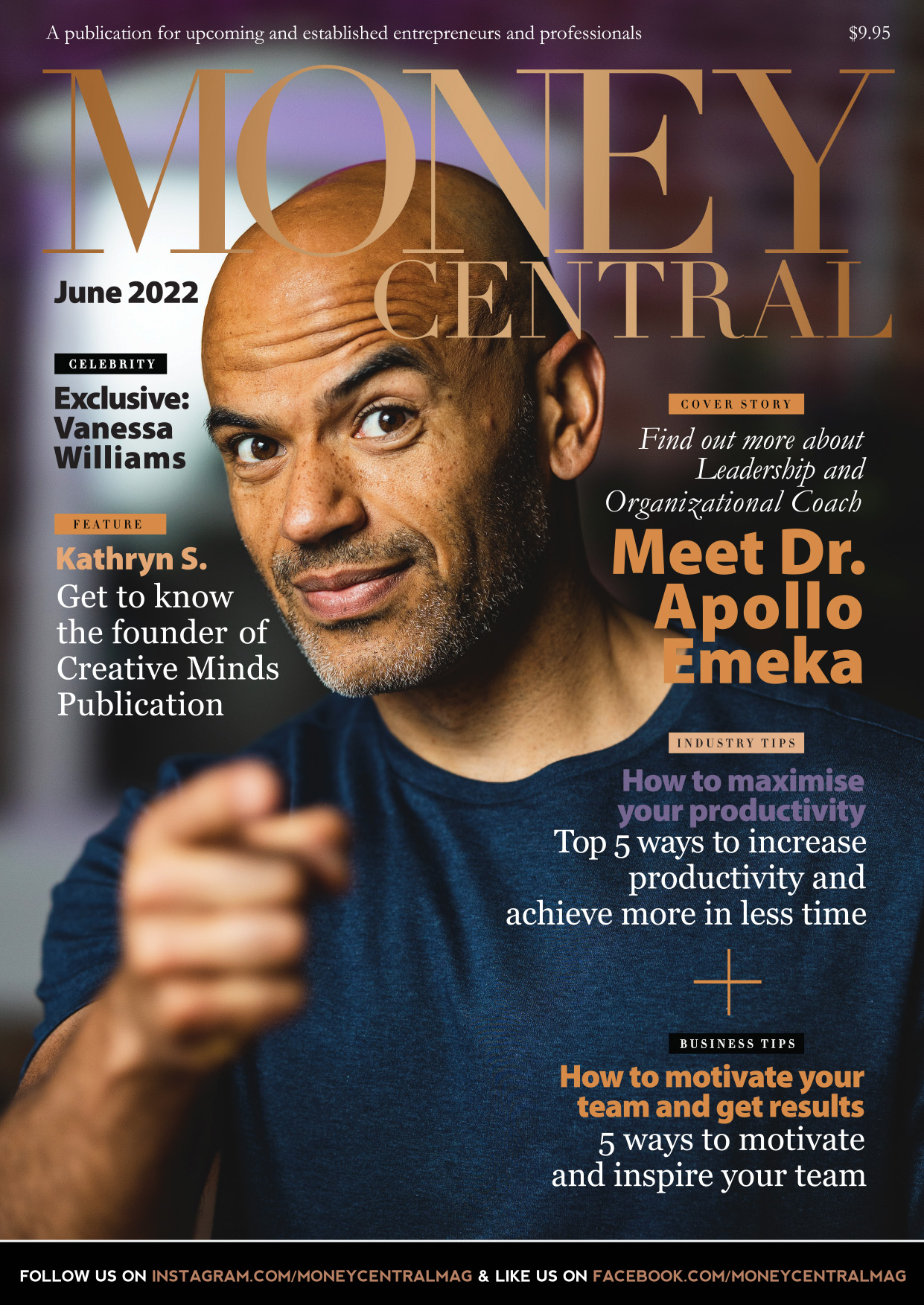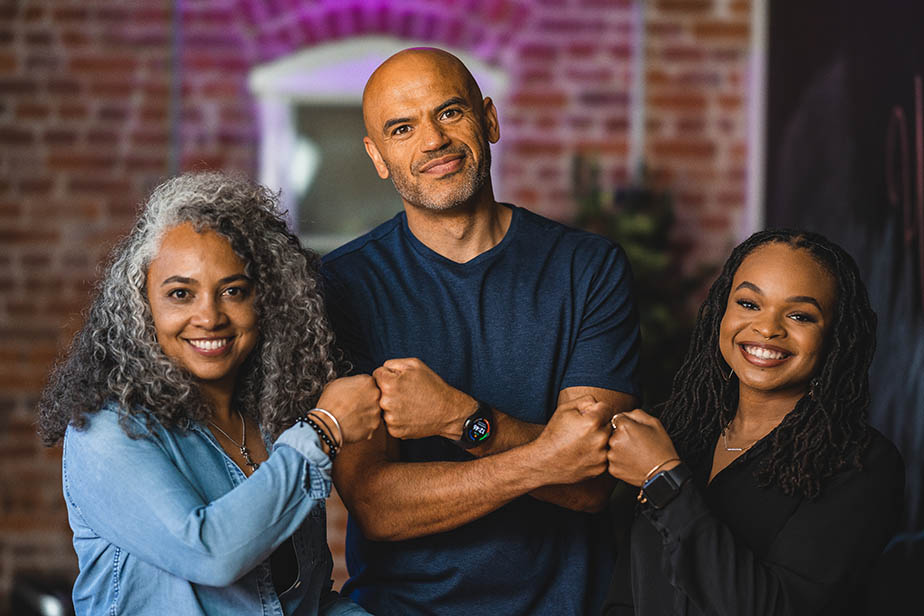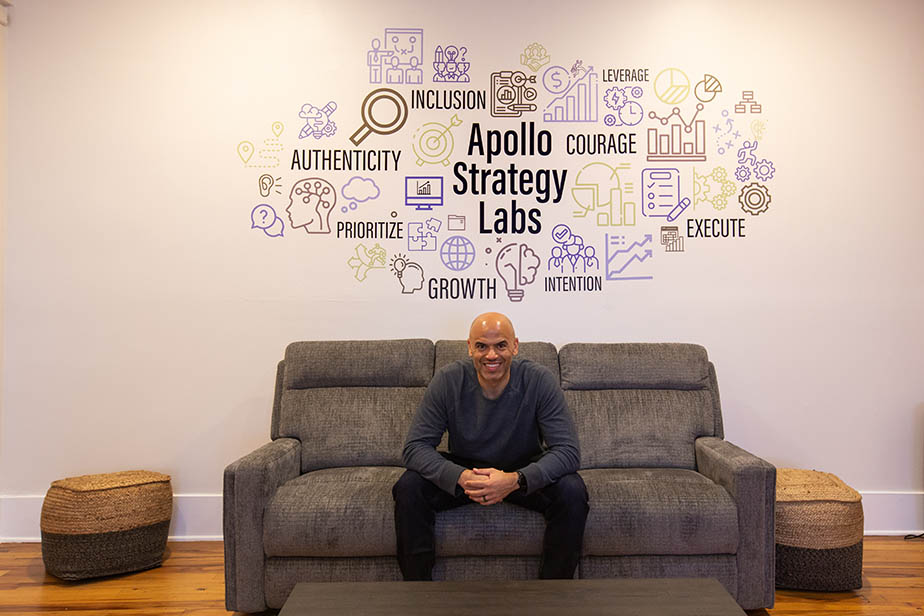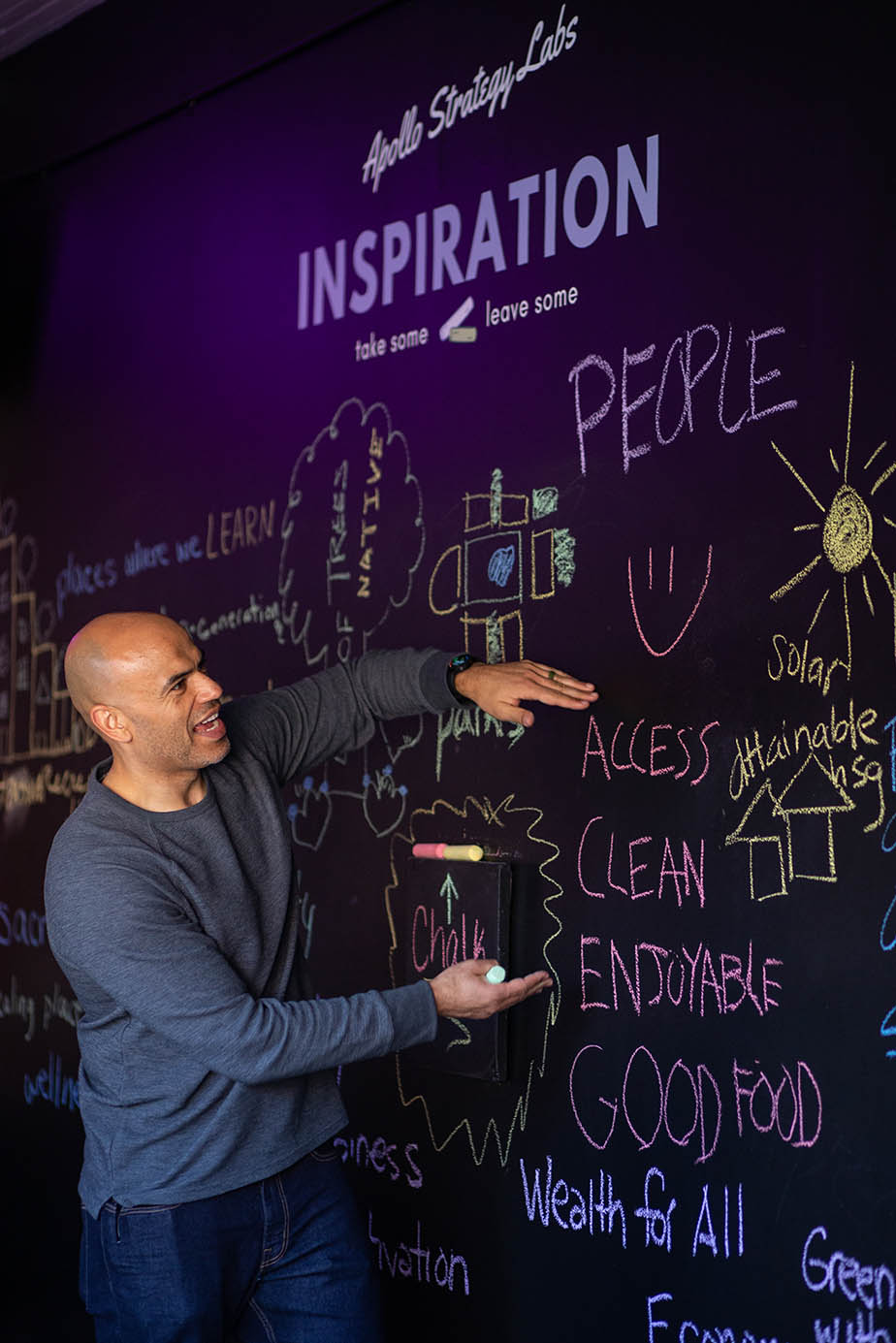
Dr. Apollo Emeka is a leadership and organizational coach and consultant with a vision to see everyone reach their full potential for good. If you saw Apollo as a kid, you probably wouldn’t expect he’d grow into the type of guy who’d be fortunate enough to start, grow, and run his own business. In fourth grade, he essentially stopped going to school and officially opted for the GED at 17 years old. Few would have thought he would ever earn a doctorate, join the FBI, become a Green Beret, or become a successful entrepreneur.
Apollo continuously took unconventional and sometimes counterintuitive steps to achieve success. He distilled what he learned as he reached milestone after milestone and distilled it into a system that helps others achieve seemingly impossible personal and professional feats. Apollo is the ultimate coach, consultant, and accountability partner to help high-performers stay focused on the strategies and actions they commit to.
MoneyCentral Magazine recently caught up with Apollo to discuss his journey in the industry, and here’s what went down:
Could you please tell our readers a brief background about yourself and how you became a leadership and organizational coach?
Growing up, I didn’t go to many schools and never graduated high school. Despite my unconventional start, I had ambitious hopes and dreams. I knew if I had any chance of accomplishing greatness, I’d have to do it unconventionally. By the time I was 36, I had accomplished nearly everything I had set out to do when I was 18.
I battled my way through community college, then went on to earn a BA and a doctorate from USC. I served in the FBI for six years; I became a Green Beret and did Special Forces work worldwide, built and sold a business, and started a family. My ability to accomplish so many big tasks in such a short time frame drew the attention of a friend and fellow entrepreneur, Chris, who asked me to consult on his business. That was 2016, and he was my first client. I’ve always had a passion for growth and performance improvement, but it was Chris who helped me see that I could build another business out of that passion.
Is there a particular moment that comes to mind when you realized leadership coaching was your calling?
Some leaders energize and empower teams, and other leaders create chaos and stress. Like most people, I’ve worked for both types of leaders, which made me understand the impact leadership can have on people and outcomes within organizations.
When I attended the Special Forces qualification course, I learned how transferable leadership skills are. I came out the other end of that 15-month course completely transformed. I figured if I could learn all of these skills, anybody could. I carry the philosophy into my own company and help other entrepreneurs embody the same skills.
How did you get into this line of work? What qualifies you to be a leadership and organizational coach?
Coaching is such a strange profession right now. There are coaching certifications you can earn in a matter of hours online and others that take months of study, in-person meetings, and supervised coaching sessions. But I believe that anyone can be a coach in areas where they are knowledgeable.
Every single member of a Special Forces team is a coach in their areas of expertise. My specialty was communications, so I regularly coached my teammates on radio operations. I’d also get coached by our medics on things like hemorrhage control and get coached by our engineers on the safe handling of explosives. I believe that what qualifies one to be a coach is the proven experience in impacting the desired outcomes of the person they are coaching. And that if you are a member of a team that has skills that others don’t, it is your obligation to coach them.
So, what qualifies me to be a coach? I have a track record of personal accomplishments despite daunting obstacles. I’ve built and sold a business, I’ve coached across language and cultural differences worldwide as a Green Beret, and my doctoral work focused on organizational development and leadership. Every time I help clients achieve their goals, I become a little more qualified. Being a great human is all about continuous learning and development. Coaches have an even greater obligation to continuous improvement. I never stopped learning.

What are some primary issues that you see your clients going through?
All of our clients want to shift their team culture to incorporate diverse perspectives and generate high-performance results. Their challenges range from managing change and its fear to understanding what skills and systems will drive high-performance. Even as teams become more diverse, the status quo is a powerful cultural force that prevents diverse perspectives and ideas from being leveraged to their fullest potential. As a result, innovation efforts fall flat, things feel overwhelming, calendars are packed, and organizations plunge into a reactive fire-fighting mentality. Our services are designed to help our clients overcome these challenges and achieve consistent success.
What is the most difficult part of your job?
The most difficult part of the job is also the most fun. Unlike most coaching and consulting agencies, our goal is to build capacity within the companies we work with. We’re not trying to be the smartest people in the room; instead, we aim to help our clients become stronger, better, faster versions of themselves. When clients have a growth mindset, their ability to generate high-performance results improves quickly and dramatically. On the other hand, working with some clients feels a bit like trying to coach a couch potato to run a marathon. It doesn’t do any good for us to run the marathon for them. But that’s also the fun part because everyone gets super pumped when the couch potato not only crosses the finish line but becomes a motivator and coach themselves. That’s a cultural shift!
Another big challenge is that we are committed to outcomes, not deliverables. We don’t get tunnel vision on completing a deliverable at all costs, even when we know it won’t move the needle. We stay focused on the desired outcome and constantly engage in reflection and retrospection with our clients to understand how we need to pivot our activities to get the results we all want.
What form of marketing has worked well for your business throughout the years?
I take two approaches to marketing: passive and active. Our passive efforts consist of thought leadership content. We’ve gotten a surprising amount of business from videos and blog posts that resonate with people.
My active marketing approach is hyperfocused networking. I’m not talking about going to the Chamber of Commerce meeting and swapping business cards, then having ten lunch meetings to keep in touch. I have a list of companies we want to work with, and I actively ask happy clients and close personal connections to make introductions with the pretext of working together. I’m surprised by how few people take this direct approach. It’s how we’ve generated the bulk of our business.

What is the toughest decision you had to make in the last few months?
In the last few months, we had to make the tough decision to end our work with a client once I realized our values weren’t in alignment. Our company values are courage, inclusion, authenticity, intention, and growth, and we take them very seriously. This client didn’t display the courage necessary to generate the ambitious results they said they wanted. It felt like we wanted to hit their goals more than they did. It also became painfully clear that this client was not committed to inclusion which is inconsistent with the makeup of our company and the vision of the world we seek to co-create.
We don’t expect the companies we work with to mirror our values. We look for companies with complementary values that create magical synergies to foster close working relationships and create mind-blowing results. That type of synergy is what we have with the rest of the leaders and teams we work with.
What new business would you love to start?
I’m completely obsessed with our current business, and I’ve prioritized exciting ways we’re going to grow and expand to serve more people even better.
That said, if I were starting a business today, it would probably be in the mental health space. Emotional intelligence is so important, and most people are never explicitly taught how to develop it. Couple that with the increasingly complicated nature of just being a human, and you get a massive market need and an opportunity to do some real good in the world.
What is the best advice you have ever been given?
The selection process for Special Forces is a physically, mentally, and emotionally daunting three-week event. On the first day of selection, a crusty old medic with a thick Boston accent addressed around 500 other soldiers hoping to qualify for Special Forces and me and said, “I know you’re all here because you think you want to be hard. But there’s hard smart, and there’s hard stupid. If you’re about to hurt yourself or get injured, just stop and come see me.” He paused a moment and then exclaimed, “Don’t be hard f***ing stupid!”
That quote really hit me. I hear that thick Boston accent every time I think that I might be pushing myself too hard. You can’t fight if you’re broken!
What advice would you give to a newbie Entrepreneur setting up their first business?
People tend to focus too much on admin and operations early in the business formation stage. Like, “Should it be an LLC or an S-Corp?”Or, “What kind of software should I use?” The only thing you should be thinking about early on is, “How am I going to create massive amounts of value?” It means finding a big problem you can solve for someone or a massive opportunity you can seize.
If you can create an opportunity for someone to save or gain $10 in value, you can easily charge them $1. That math works into the millions. If you can create an opportunity for someone to save or gain $10million in value, you can charge them $1million. Before you think about what you’re going to sell, identify a target market and talk to them about their challenges and hopes. Once you’re really clear on the size of the value there, you can start building your product or service to create massive value and capture a portion of that.
